第28章
These worms were generally grilled on hot stones, and eaten several at a time like small whitebait.I often ate them myself, and found them most palatable.After breakfast the women of the tribe would go out hunting roots and snaring small game for the afternoon meal, while the men went off on their war and hunting expeditions, or amused themselves with feats of arms.The children were generally left to their own devices in the camp, and the principal amusement of the boys appeared to be the hurling of reed spears at one another.The women brought home the roots (which they dug up with yam sticks, generally about four feet long) in nets made out of the stringy parts of the grass tree; stringy bark, or strong pliable reeds, slung on their all-enduring backs.They generally returned heavily laden between two and three in the afternoon.I always knew the time pretty accurately by the sun, but I lost count of the days.The months, however, I always reckoned by the moon, and for each year I made a notch on the inside of my bow.
My own food was usually wrapped in palm leaves before being placed in the sand oven.Of course the leaves always burned, but they kept the meat free from sand; and my indefatigable wife was always exercising her ingenuity to provide me with fresh dainties.In addition to the ordinary fare of the natives, I frequently had wild ducks and turkeys, and--what was perhaps the greatest luxury of all--eggs, which the natives sent for specially on my account to distant parts of the surrounding country, and also to the islands of the coast where white cockatoos reared their young in rocky cliffs.
At the time of my shipwreck I had little or no knowledge of Australian geography, so that I was utterly at a loss as to my position.I afterwards learnt, however, that Yamba's home was on Cambridge Gulf, on the NNW.coast of the Australian continent, and that the central point of our camping ground at this time was near the mouth of the Victoria River, which flows into Queen's Channel.
Almost every evening the blacks would hold a stately corroboree, singing and chanting; the burden of their song being almost invariably myself, my belongings, and my prowess--which latter, Ifear, was magnified in the most extravagant manner.Besides the corroboree they also would assemble for what might not inaptly be termed evening prayers, which consisted of a poetical recital of the events of the day.I ought to mention that at first I did not accompany the men on their excursions abroad, because I was far from perfect in their language; and furthermore, I was not skilled in hunting or in bush lore.Therefore, fearful of exciting ridicule, I decided to remain behind in the camp until I was thoroughly grounded in everything there was to be learned.
Supposing, for example, I had gone out with the blacks, and had to confess myself tired after tramping several miles.Well, this kind of thing would certainly have engendered contempt; and once the mysterious white stranger was found to be full of the frailties of the ordinary man, his prestige would be gone, and then life would probably become intolerable.
Thus everything I did I had to excel in, and it was absolutely necessary that I should be perpetually "astonishing the natives,"in the most literal sense of the phrase.Accordingly, for the next few weeks, I used to accompany the women on their root-hunting and rat-catching expeditions, and from them I picked up much valuable information.
The corroboree was, perhaps, the greatest institution known to the blacks, who, obliged to do no real work, as we understand it, simply had to pass the time somehow; and there can be no doubt that, were it not for the constant feuds and consequent incessant wars, the race would greatly deteriorate.The corroboree after a successful battle commenced with a cannibal feast off the bodies of fallen foes, and it would be kept up for several days on end, the braves lying down to sleep near the fire towards morning, and renewing the festivities about noon next day.The chiefs on these occasions decked themselves with gorgeous cockatoo feathers, and painted their bodies with red and yellow ochre and other glaring pigments, each tribe having its own distinguishing marks.A couple of hours were generally spent in dressing and preparing for the ceremony, and then the gaily-decorated fighting-men would dance or squat round the fires and chant monotonous songs, telling of all their own achievements and valour, and the extraordinary sights they had seen in their travels.
The words of the songs were usually composed by the clan's own poet, who made a living solely by his profession, and even sold his effusions to other tribes.As there was no written language the purchaser would simply be coached orally by the vendor poet; and as the blacks were gifted with most marvellous memories, they would transmit and resell the songs throughout vast stretches of country.
These men of the north-west were of magnificent stature, and possessed great personal strength.They were able to walk extraordinary distances, and their carriage was the most graceful Ihave ever seen.Many of them were over six feet high, well made in proportion and with high broad foreheads--altogether a very different race from the inhabitants of Central Australia.One of their favourite tests of strength was to take a short stick of very hard wood and bend it in their hands, using the thumbs as levers, till it snapped.Strange to say, I failed to bend the stick more than a quarter of an inch.The women are not very prepossessing, and not nearly so graceful in their bearing and gait as the men.